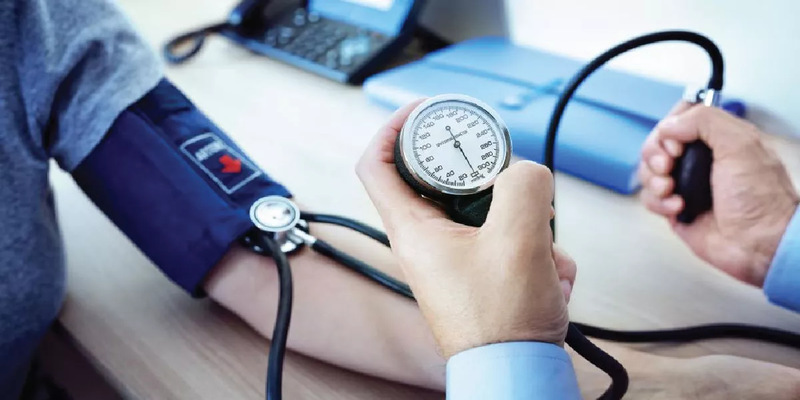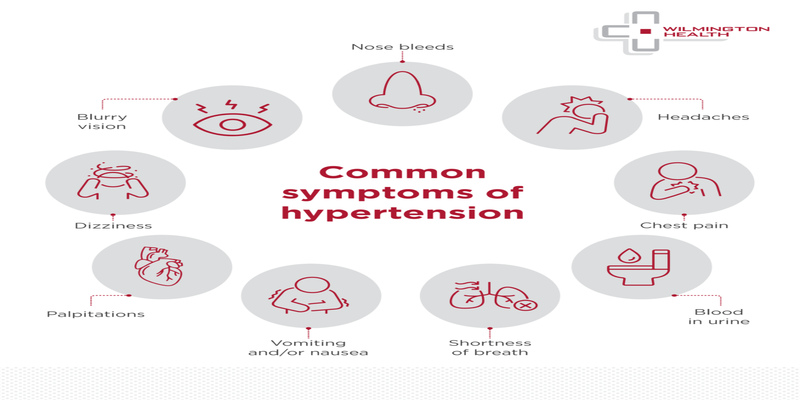Despite feeling well, one out of three people suffer from a severe condition when the blood in arteries moves at a pressure higher than usual, then the heart has to work more to pump blood.
It puts you at risk of stroke, kidney failure or even heart attack. And this condition is medically known as high blood pressure or hypertension.
Often, there are no noticeable symptoms, leading individuals with high blood pressure to believe they are in good health. However, it can cause permanent harm or even be fatal if not treated.
Frequent checks of your blood pressure can help both you and your physician in noticing any alterations!
Lifestyle changes, such as adopting a better eating plan, and increasing physical activity, can aid in reducing blood pressure.
Want to know how serious is your hypertension? Well, this article provides key insights into hypertension, including its symptoms, causes, and control strategies to help you stay healthy.
What is Hypertension?

The term "hypertension" is used to describe this widespread condition. Blood pressure is typically measured in millimetres of mercury (mm Hg).
Generally, hypertension is defined by a blood pressure reading of 130/80 mm Hg or above. Blood pressure readings between 120/80 and 129/89 are considered to be in the pre-hypertension range.
Individuals with pre-hypertension have blood pressure that is not as low as it should be but are not yet classified as having high blood pressure.
High blood pressure occurs when the pressure of blood against the walls of your arteries remains too high consistently. This can harm your arteries over time, potentially causing severe problems such as heart attack and stroke.
If your blood pressure is consistently high, a healthcare professional might recommend monitoring your blood pressure over a period of weeks to observe if it returns to normal or remains elevated.
Treatment for hypertension involves a combination of medication and adopting a healthier lifestyle.
Common Symptoms of Hypertension
 Many individuals with elevated blood pressure don't experience any signs, even when their blood pressure levels soar to dangerously high points. It's possible to have high blood pressure for a long time without noticing any symptoms.
Many individuals with elevated blood pressure don't experience any signs, even when their blood pressure levels soar to dangerously high points. It's possible to have high blood pressure for a long time without noticing any symptoms.
When your blood pressure is 180/120 mmHg or higher, few people may experience symptoms like:
- Shortness of breath
- Headaches
- Dizziness
- Chest pain
- Numbness
- Change in vision
- Back pain
- Vomiting
- Nosebleeds
Causes and Risk Factors
Over time, high blood pressure increases the pressure of blood flowing through the arteries. Its main causes are:
Unhealthy Diet
Foods rich in fat can cause a buildup of fatty deposits on the inner walls of blood vessels, making the arteries smaller and making the heart have to pump harder to ensure enough blood reaches your limbs.
Irregular Sleeping Patterns
As time goes on, issues such as sleep apnea can cause your blood pressure to rise as a way to make up for the reduced amount of oxygen reaching your body.
Age Factor
Individuals aged 65 and older are at an increased risk of developing high blood pressure.
No Physical Activity
A lifestyle that involves little to no physical activity leads to elevated blood pressure by resulting in the hardening of arteries and the accumulation of plaque within them.
Genetic Factors
There are numerous genetic differences that can predispose an individual to high blood pressure; approximately 30 percent of high blood pressure instances are linked to a genetic mutation from inherited genes from a person's family.
Different Stages of Hypertension
Category | Systolic Blood Pressure | Diastolic Blood Pressure |
Normal BP | Less than 120 mmHg | Less than 80 mmHg |
Elevated BP | 120 to 129 mmHg | Less than 80 mmHg |
Stage 1 Hypertension | 130 to 139 mmHg | 80 to 89 mmHg |
Stage 2 Hypertension | 140 mmHg or higher | 90 mmHg or higher |
Assessing the Severity of Hypertension: How To Know!

Monitoring your blood pressure is a crucial aspect of maintaining your overall health. The frequency of your blood pressure checks varies based on your age and general health conditions.
It's advisable to request a blood pressure evaluation at least every two years from the age of 18. For individuals aged 40 or above with a high risk for hypertension, it's recommended to have your blood pressure checked annually.
In addition, your healthcare provider is likely to suggest more regular evaluations if you have hypertension or other risk factors for cardiovascular diseases.
Also, children who are three years old or older might have their blood pressure taken during their annual medical examinations.
What Diagnostic Procedures are Available?
A blood pressure reading consists of two numbers: the upper number is called the Systolic number, and the lower number is called the Diastolic number. These numbers give a reading of blood pressure in millimetres of Mercury.
If you are diagnosed with hypertension, your healthcare provider may ask for some tests.
- Lab Tests
Urine and blood tests are conducted to check for the main reason behind elevated blood pressure. These tests basically check your blood sugar and cholesterol levels, kidney function, liver and thyroid.
- ECG
An electrocardiogram or ECG is a painless procedure to monitor heart activity. This test is performed to check how fast or slow your heart is beating.
- Ambulatory monitoring
This test may be done to check blood pressure at regular times over 24 hours. The devices used for the test aren't available in all medical centers. Check with your insurance service provider to see if ambulatory blood pressure monitoring is a covered service.
Final Thoughts
Controlling your blood pressure should be part of a healthy living plan and a lifelong task. Blood pressure usually presents with no obvious symptoms, so checking it regularly is important. It can cause severe health-related issues, and its treatment involves a combination of medicines and adopting a balanced lifestyle.
The sooner you diagnose how serious is your hypertension, the sooner you can manage and control it in the best possible ways.






